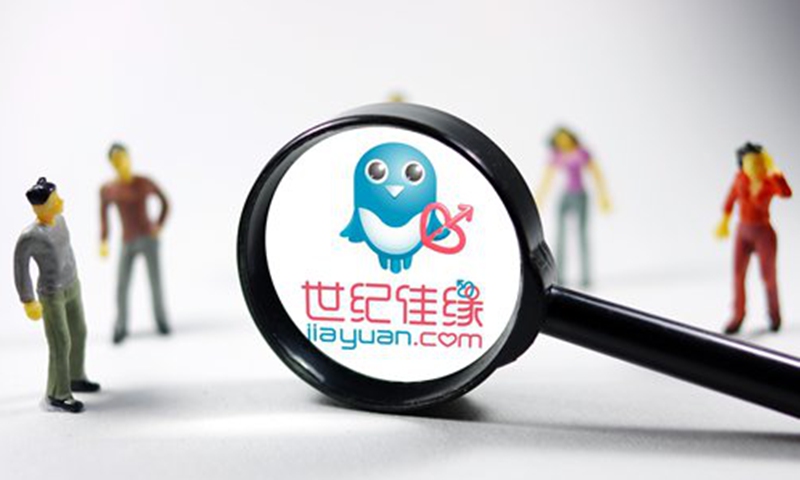
Photo: VCG
A woman from Beijing who was swindled a total of 8.24 million yuan ($1.27 million) by a man she fell in cyber love with through a matchmaking site stirred concerns on the dating website's responsibilities in terms of fraud.
The woman surnamed Zhang met the man surnamed Yang who claimed to be a bank employee through China's popular dating site jiayuan.com in March.
Yang claimed that he attempted to purchase a 70-million-yuan villa, but he was still short dozens of millions of yuan even if he sold his own property worth 20 million yuan.
Yang promised Zhang that he could plug the gap through investment and induced Zhang to transfer money into Yang's 15 accounts and invest the money through a so-called Singapore Financial Digital Currency Trading Center.
However, while Zhang discovered that all the money she profited from the investment could not be withdrawn, she also found that Yang, who she never met in person, cut all contact with her and canceled his account on jiayuan.com.
The conversations and interactions between Zhang and Yang on the dating site also disappeared which disturbed the evidence gathering by Zhang who reported the fraud to police.
Zhang thought that the dating site should be accountable for the fraud.
But Zhang Nan, public relations specialist from jiayuan.com told the Global Times on Monday that the website has fulfilled its obligations in verifying the user's mobile phone number. The reason why it did not require ID verification is to avoid violating national regulations by excessively collecting users' information.
Besides, the website also pops up alert messages in real time to remind users not to transfer money to other users during online dating.
The company promised to cooperate with the police investigation and evidence collection work afterwards.
Liu Ning, law expert from Beijing Lawyers Association also admitted that it is difficult to hold the dating site to account for the fraud since it only promised to assure the users to register with their real names but did not promise the users' moral quality.
Global Times




